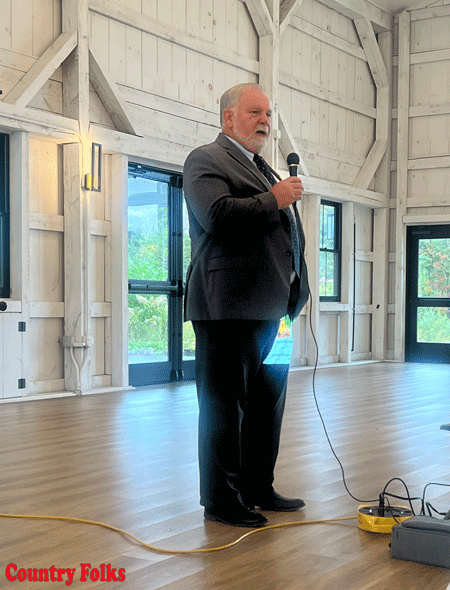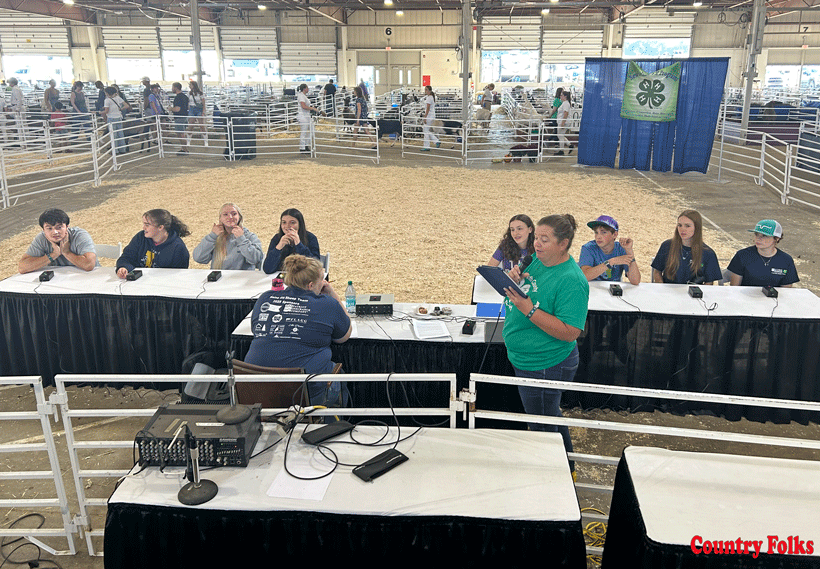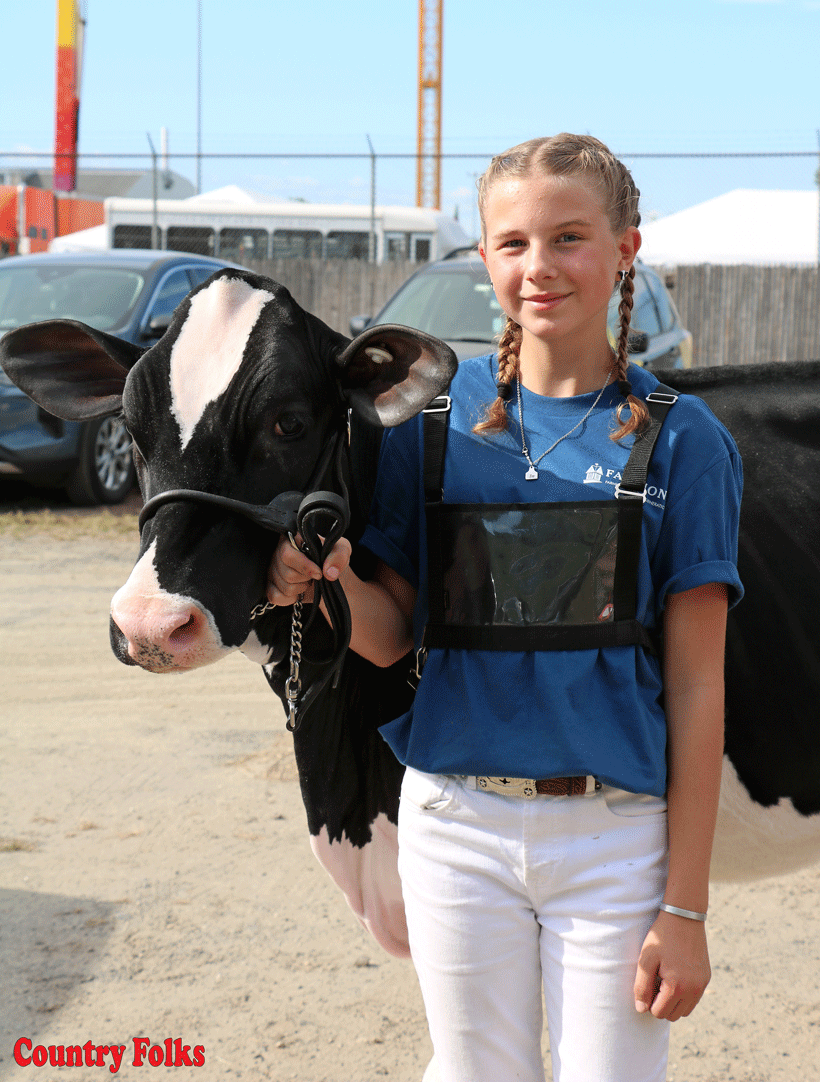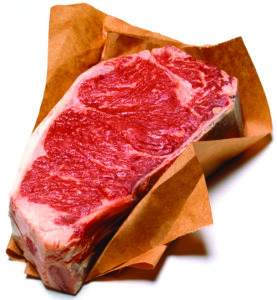Each year, UNH Extension hosts the New Hampshire Agriculture Professionals Day to connect ag service providers and farmers across the state. On Sept. 24, approximately 70 enthusiastic ag service providers and farmers representing 22 organizations attended the event to collaborate with one another and hear about industry updates.
Ag Commissioner Shawn Jasper shared that State Veterinarian Dr. Steve Crawford has officially retired after 20 years in the position. Dr. Mark Prescott became the new state veterinarian on Oct. 3.
Catherine Coverdale, a pollinator conservation and IPM specialist with the Xerces Society and a NRCS partner biologist, introduced a new IPM activity planned for this upcoming fiscal year: mating disruption. Mating disruption utilizes the natural pheromones produced by pests, and their presence in the field helps prevent mating. This can reduce sprays by 50% in the first few years of use. Coverdale is “really excited about this option to improve the sustainability of agriculture.”
Rebecca Ross, director of agricultural development for the Department of Agriculture, Markets & Food (NHDAMF), presented a new logo to help brand Granite State farms. The new “Natively New Hampshire” logo will hopefully be available for farmers to use by summer 2026. Ross is excited to see the logo integrated throughout the supply chain, to make it easy for consumers to know where products come from.
Currently, the logo will only be used for branding specialty crops, but Ross is working to expand the logo to represent “anything as long as it’s from New Hampshire and its agriculture.”
Entomology and IPM Extension State Specialist Amber Vinchesi-Vahl explained the importance of on-farm monitoring. This program, funded by NHDAMF, has over 25 participating farms throughout the state, and the participating 2024 growers “saved on average, two to three sprays” – saving over $100,000 and increasing overall yields.
With this on-farm monitoring, farmers are “able to adapt and anticipate the changes in pest patterns that we are seeing with a shift in climate,” Vinchesi-Vahl said. Farmers can anticipate when pests will arrive, and at what life stage they are most vulnerable.

New Hampshire Ag Commissioner Shawn Jasper was one of the speakers at this year’s NH Ag Professionals Day. Photo by Kelsi Devolve
UNH Extension Commercial Horticulture Field Specialist Jonathan Ebba pointed out that although greenhouses only have a fraction of the pests you find outside, greenhouse pests are shared throughout the globe, and therefore share pesticide resistance. Using biocontrols – a management practice using living organisms to control pests – in the greenhouse is a very effective way to reduce “both pesticide applications and pesticide resistance.” These biocontrol organisms are efficient at locating prey and target specific pests and life stages.
Carl Majewski, Extension food and agriculture field specialist, spoke about their goals to help farmers improve their grain production practices to “improve or at least maintain their yields [and] their quality.” In the last decade, there has been an increase in the number of farms producing a wide variety of grains, whether to feed their livestock or to sell to bakeries, distilleries or other high-value product operations.
UNH Extension is working with farmers to improve their pest, weed and disease management practices, and to recommend quality tests and nutrient adjustments. A wide variety of new programs were introduced this year, including two disaster relief programs from USDA-FSA. Jeffrey Holmes, NH FSA state executive director, introduced the Supplement Disaster Relief Program and the Emergency Livestock Relief Program as opportunities to be compensated for some disaster costs.
Shyloh Favreau, Extension state specialist for the forestry industry, introduced UNH’s new tick testing service. The public can submit a tick to the program and within three days, they will receive a report listing any pathogens the tick carries.
Colleen Jennings, network coordinator for the NH Food Alliance, introduced “New Hampshire’s first ever food and agriculture strategic plan,” which was published in March 2025. The plan has 143 recommendations across 27 various topics within the ag industry. The NH Food Alliance is now working to develop ways to assist farmers in implementing these recommendations.
by Kelsi Devolve











Leave A Comment